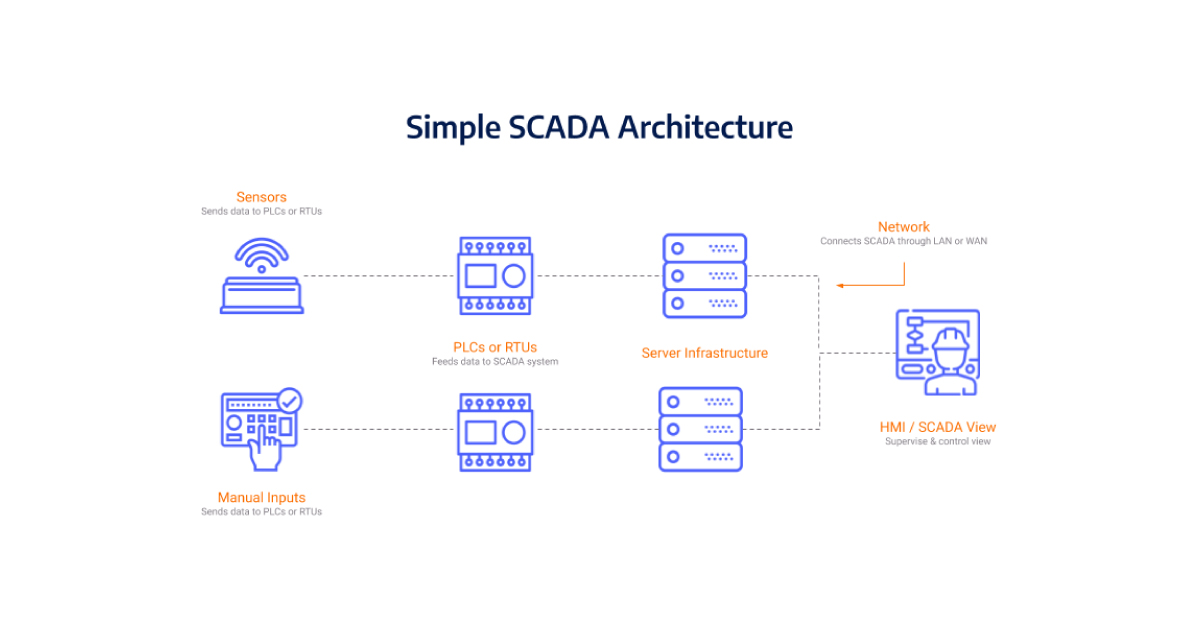Supervisory Control and Data Acquisition (SCADA) systems have been the backbone of industrial automation for over three decades. Traditionally, these systems operated in isolated environments, making them relatively secure. However, with the integration of IT networks and internet connectivity, industrial operations have become more efficient—but also more vulnerable to cyber threats.
The Evolution of SCADA Systems
The industrial sector has witnessed the rise of next-generation SCADA systems designed to meet modern operational demands. Unlike traditional systems that relied on flat-file structures, newer SCADA platforms utilize object hierarchies, enabling more efficient data organization and scalability. This advancement allows industries to expand their operations without relying on complicated customizations.
Yet, many industries continue to rely on outdated SCADA systems. Vendors have tried to extend the lifespan of these systems with surface-level updates, but the core technology often remains unchanged. This lag in modernization exposes organizations to significant cybersecurity risks and operational inefficiencies.
The Risks of Outdated SCADA Systems
Old SCADA systems present numerous challenges:
- Cybersecurity Vulnerabilities: Outdated platforms lack modern security measures, increasing susceptibility to cyberattacks.
- Operational Instability: Legacy systems are prone to sudden failures, jeopardizing plant operations.
- Workforce Challenges: Experienced SCADA engineers are retiring, creating a skills gap that leaves critical systems vulnerable.
Advantages of Upgrading to Next-Gen SCADA
Modern SCADA systems offer numerous benefits:
- Greater Interoperability: Seamlessly integrate with other industrial systems and IoT devices.
- Enhanced Cybersecurity: Built-in security protocols reduce exposure to cyber threats.
- Streamlined Data Management: Object hierarchies and unified development environments simplify operations.
- Operational Efficiency: Real-time monitoring and analytics improve decision-making.
When to Upgrade Your SCADA System
Deciding whether to upgrade or replace your SCADA system depends on several factors:
- Operational Risks: Systems operating on outdated software are at higher risk of failure and cyberattacks.
- Cost-Benefit Analysis: While upgrades can be costly, the potential cost of a cyberattack or operational failure is far greater.
- Lifecycle Management: Implementing a Systems Lifecycle Management (SLM) approach ensures ongoing system performance and security.
Overcoming the Challenges of Transition
Transitioning to a modern SCADA system can be daunting. Common concerns include:
- Cost and Budget Constraints
- Fear of Disruption During Migration
- Lack of Skilled Personnel
However, these challenges can be mitigated through careful planning, phased implementation, and partnering with experienced cybersecurity firms like Saturn Partners.
Conclusion
The industrial automation sector must prioritize upgrading SCADA systems to stay ahead of cybersecurity threats and maintain operational stability. For companies still operating on first-generation SCADA software, the time to modernize is now. Adopting next-gen SCADA systems not only protects your operations but also positions your business for future growth.
At Saturn Partners, we specialize in guiding industries through seamless SCADA upgrades and cybersecurity enhancements. Contact us today to safeguard your industrial operations and prepare for the future.

